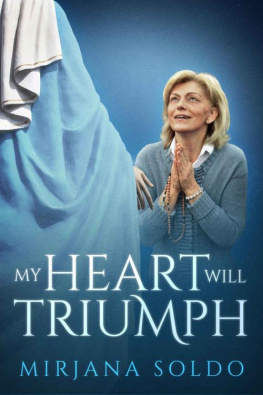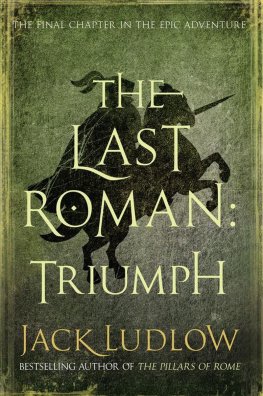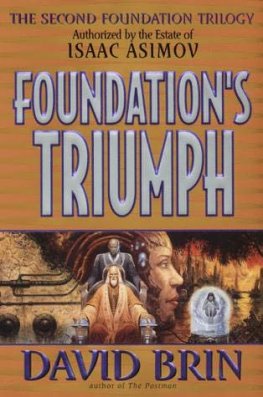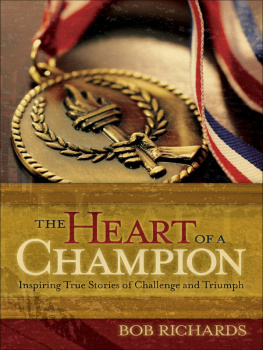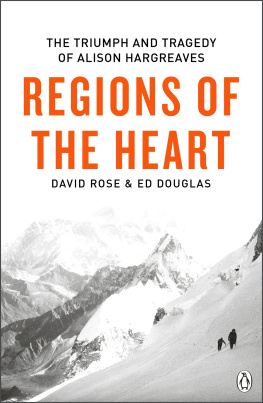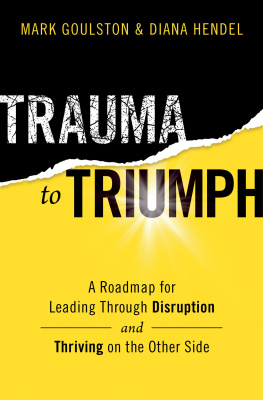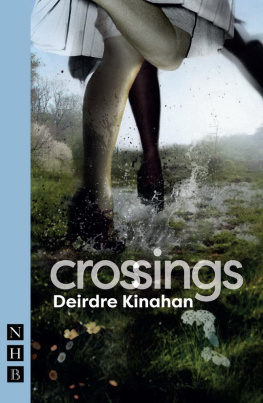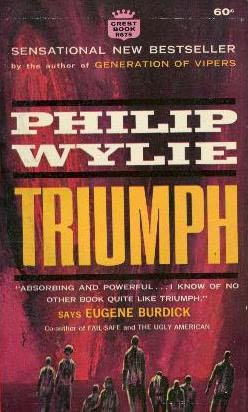Mirjana Soldo - My Heart Will Triumph
Here you can read online Mirjana Soldo - My Heart Will Triumph full text of the book (entire story) in english for free. Download pdf and epub, get meaning, cover and reviews about this ebook. year: 2016, genre: Non-fiction. Description of the work, (preface) as well as reviews are available. Best literature library LitArk.com created for fans of good reading and offers a wide selection of genres:
Romance novel
Science fiction
Adventure
Detective
Science
History
Home and family
Prose
Art
Politics
Computer
Non-fiction
Religion
Business
Children
Humor
Choose a favorite category and find really read worthwhile books. Enjoy immersion in the world of imagination, feel the emotions of the characters or learn something new for yourself, make an fascinating discovery.
- Book:My Heart Will Triumph
- Author:
- Genre:
- Year:2016
- Rating:3 / 5
- Favourites:Add to favourites
- Your mark:
- 60
- 1
- 2
- 3
- 4
- 5
My Heart Will Triumph: summary, description and annotation
We offer to read an annotation, description, summary or preface (depends on what the author of the book "My Heart Will Triumph" wrote himself). If you haven't found the necessary information about the book — write in the comments, we will try to find it.
My Heart Will Triumph — read online for free the complete book (whole text) full work
Below is the text of the book, divided by pages. System saving the place of the last page read, allows you to conveniently read the book "My Heart Will Triumph" online for free, without having to search again every time where you left off. Put a bookmark, and you can go to the page where you finished reading at any time.
Font size:
Interval:
Bookmark:

For Father and Mother
In a special way, I wish to thank Miki Musa and Sean Bloomfield. It is because of their love, patience and help that this book has come among you.
Table of Contents
INTRODUCTION
My name is Mirjana. Ive experienced visions of the Virgin Mary for more than 35 years. I cannot say it more directly than that.
I understand that it might be difficult to imagine such a thing happening in modern times. Even to some believers, miracles are things of the past. But I doubt that anyone was more shocked than I was when it all began. I did not even know such things could take place, especially in Meugorje, a small village in former Yugoslavia.
You should know that Ive been tested by doctors and scientists from all over the world, and they all agree on one thing: I am perfectly normal. I even have that in writing.
So, before you question my mental health, with a smile on my face I simply ask: Do you have an official document validating your sanity?
I did not write this to persuade you to believe me. I am just a messenger, and I wish to share my story with the hope that it might bring some comfort to a world in which peace is becoming increasingly scarce.
Saying that my life changed on the afternoon of June 24, 1981 hardly conveys the gravity of what transpired.
Until that day, I lived under the heavy hand of communism and stomached the many aggravations that went along with it, but the worst suffering began after I and five other children experienced something extraordinary.
What we saw radically changed us, our families, and millions of people around the world, but it also provoked the wrath of the Yugoslav regime. Fearing that my testimony was a threat to their rule, the communists declared me an enemy of the state when I was just 16 years old.
Perhaps their fears were warranted, because I had come to know something far greater than the communist governmentfar greater, in fact, than anything on Earth
I had come to know Gods love.

The six of us in the first days of the apparitions. From left to right: Ivan, Marija, me, Ivanka, Vicka and Jakov.
CHAPTER 1
I thank you, Father, Lord of heaven and earth, because you have hidden these things from the wise and the intelligent and have revealed them to infants.
Jesus (Matthew 11:25)
I n the beginning, among the six of us, I was the outsider.
Unlike the others, I had grown up in Sarajevo. With its busy streets and tall buildings, everything about my city was a stark contrast to the fields, dirt roads, and stone houses of Meugorje.
But even greater than the physical differences of these two places were the cultural ones.
Meugorje was populated mostly by the Croats, a proud people who had endured countless hardships throughout history. Whether facing Turkish conquerors or communist oppressors, the residents of Meugorje stayed true to their Catholic faith. Still, even in 1981, those who lived in Meugorje had to be discreet about their beliefs so as not to draw the scrutiny of the government.
The population of Sarajevo, on the other hand, was a colorful blend of all the people who inhabited the rest of Yugoslavia. Sometimes called the Jerusalem of Europe, Sarajevos population of roughly 400,000 people included Bosnian Muslims (about 45%), Serbian Orthodox Christians (30%), a scattering of us Catholic Croats (8%), and even a small community of Jews. The dominant ideology in those days, however, was atheistic communism.
Sarajevos diverse history was especially obvious in its architecture. It looked as if pieces of different puzzles had been tossed together to make a city. On the periphery, the red tile roofs of traditional Bosnian homes shone bright against drab concrete monoliths built by the communists, while closer to Baarija Sarajevos charming Old Town and the heart of the cityornate mosques and Ottoman citadels competed for the eye with extravagant remnants of the Austro-Hungarian Empire.
Throughout my childhood, I had many friends from varying religions and backgrounds. In fact, out of all my friends in Sarajevo, only a few were Catholic. Muslims and Orthodox were far more prevalent there, and the citys skyline was dominated by minarets and Byzantine church spires. I had friends from both faiths, but we never worried about our differences. I would sometimes even celebrate my friends holy days, and they would celebrate mine. I learned to respect people of other faiths even before the Virgin Mary taught us that it was right to do so.
As I grew up, I was continually drawn to spend my summers in Meugorje, even though the houses there lacked running water and I spent most of my time working beneath the scorching sun. My aunt, uncle and cousins lived in Meugorje, and my parents allowed me to stay with them year after year. Meugorje was my second home.
Uncle imun and Aunt Slava treated me like their own child, so I never felt like I was merely a guest in their home. Their two oldest daughters, Milena and Vesna, were more like sisters to me than cousins. I slept in their room and we talked every night until their little brother Vlado asked us to be quiet or when our giggles accidentally woke their little sister, Jelena.
Sandwiched between scrub-covered mountains, the parish of Meugorje was comprised of five small hamlets. Founded on May 15, 1892, the parish was placed under the protection of Saint James, the patron saint of pilgrimsa choice which, 90 years later, would seem almost prophetic. The first church of St. James was inadvertently built on unstable ground, so a new one was completed in 1969. At first, no one understood why the priests built such a big church, but after the events of 1981, it often seemed too small.
My aunt and uncle lived in Bijakovii, a hamlet near the base of a hill called Podbrdo. Like everyone in Meugorje, they made a meager living by growing tobacco, grapes, and other crops. While traditional Herzegovinian houses featured stone walls and orange tile roofs, imun and Slava lived in a more modern home built with bricks and stucco.
No one in Sarajevo understood what I loved so much about Meugorje, not even my parents. At home, I had all the comforts of city life, which my parents worked hard to provide. By comparison, life in Meugorje was far more difficult. The villagers had to grow most of their own food, ration water, and work just to survive. Yet it was this simplicity that drew me there every summer.
For the first nine years of my life in Sarajevo, my parents treated me like a princess. My father was especially doting. If my mother asked me to do the laundry or wash the dishes, he would do it for me. My parents even brought me my breakfast in bed sometimes, and they always cooked what I liked because I was thin and they wanted me to eat more. To encourage me, my mom and dad applauded if I finished everything on my plate. This led to some embarrassing moments, though. When I was about seven years old, I visited my relatives and the family had prepared a special meal for my aunts father-in-law. I didnt know that it was only for him and I ate all of it.
I sat there proudly, expecting applause, but instead everyone looked at me with surprise. Thankfully, my aunts father-in-law laughed about it.
For a picky eater like me, the food in Meugorje was different from what I was used to. But my mother always warned me before I went there so I never complained.
If I hear that you refused to eat something, she said, then youll come back home that very second.
Font size:
Interval:
Bookmark:
Similar books «My Heart Will Triumph»
Look at similar books to My Heart Will Triumph. We have selected literature similar in name and meaning in the hope of providing readers with more options to find new, interesting, not yet read works.
Discussion, reviews of the book My Heart Will Triumph and just readers' own opinions. Leave your comments, write what you think about the work, its meaning or the main characters. Specify what exactly you liked and what you didn't like, and why you think so.

